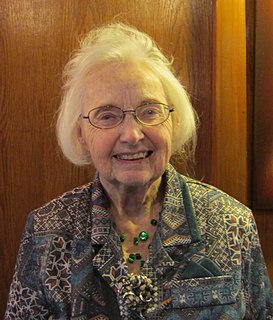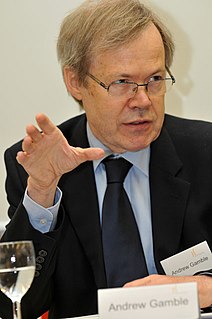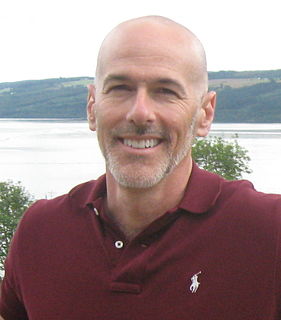A Quote by Richard Dawkins
Presumably there is indeed no purpose in the ultimate fate of the cosmos, but do any of us really tie our life's hopes to the ultimate fate of the cosmos anyway? Of course we don't; not if we are sane. Our lives are ruled by all sorts of closer, warmer, human ambitions and perceptions.
Related Quotes
The one function that most gods seem to have in common is to give human existence some ultimate purpose - and, while it is not possible to disprove an ultimate purpose, there does not seem to be any evidence for it. This is not to say, of course, that there is no purpose in life at all: we all make our own purposes as we go through life. And life does not lose its value simply because it it not going to last forever.
Although gravity is by far the weakest force of nature, its insidious and cumulative action serves to determine the ultimate fate not only of individual astronomical objects but of the entire cosmos. The same remorseless attraction that crushes a star operates on a much grander scale on the universe as a whole.
The fate of our times is characterized by rationalization and intellectualization and, above all, by the 'disenchantment of the world.' Precisely the ultimate and most sublime values have retreated from public life either into the transcendental realm of mystic life or into the brotherliness of direct and personal human relations. It is not accidental that our greatest art is intimate and not monumental.
It was the ghost of rationality itself ... This is the ghost of normal everyday assumptions which declares that the ultimate purpose of life, which is to keep alive, is impossible, but that this is the ultimate purpose of life anyway, so that great minds struggle to cure diseases so that people may live longer, but only madmen ask why. One lives longer in order that he may live longer. There is no other purpose. That is what the ghost says.
Our fate is something which exists outside ourselves, and which once revealed expresses the meaning of our lives. Apart, however, from soothsayers who claim to have a means of foretelling exactly what will befall us, this kind of fate is only normally revealed after a life has ended. Only then can the meaning of that life be understood.
Human beings are not inevitable, and our brief existence is not preordained to be extended into the distant future. If Homo sapiens is to have a continued presence on earth, humankind will reevaluate its sense of place in the world and modify its strong species-centric stewardship of the planet. Our collective concepts of morality and ethics have a direct impact on our species' ultimate fate.




































